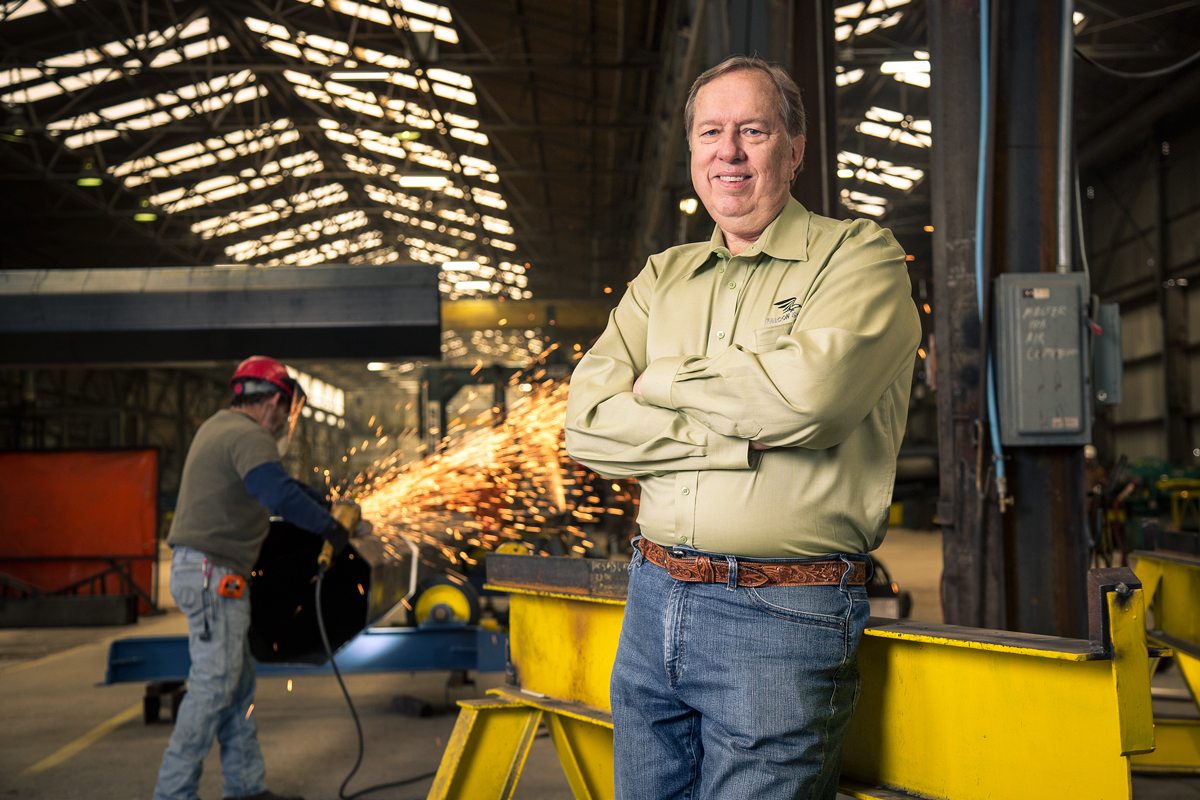A BNSF freight train rolls by, just spitting distance from the Falcon Steel Co.’s modest headquarters in Haltom City. But CEO Jim Taylor’s office is solid. Nothing shakes.
That’s not to say that Falcon, which makes electrical substations and lattice steel towers and poles that hold transmission lines, hasn’t been through monumental tremors. It emerged from Chapter 11 bankruptcy in March 2015 and, remarkably, there was no interim lending used. Even more unusual: All of its creditors will be repaid in full, and shareholders have kept control.
The firm’s Fort Worth bankruptcy attorney, Jeff Prostok, credits Taylor, a 69-year-old operational lender and turnaround pro, with steering Falcon through treacherous waters. But Taylor has been in trouble before. Once, while a CPA with Coopers & Lybrand (now PwC), he was held prisoner in Bangladesh by rebel soldiers before being flown to freedom in a rickety DC-3. Locally, Taylor saved Irving consulting firm Thomas Group, its stock price soaring from 15 cents a share to $13 during his tenure.
Hired on as Falcon’s chief restructuring officer in May 2014, Taylor was named CEO when the board saw his predecessor at loggerheads with its major lender, which prompted Texas Capital Bank to cancel Falcon’s access to credit just before it made payroll.
Years earlier, Falcon had grown fat on a $120 million contract, providing towers to carry transmission lines from West Texas wind farms. Instead of trimming costs when that contract wound down, it made several calamitous investments that cost more than $13 million, and then paid out millions more to its former shareholders on departure or retirement. Compound that with mounting bad blood, and the 50-year-old company had disaster hovering close.
“I got a call on a Thursday,” says Prostok. “The bank had drained all the cash. We had no ability to make the next payroll. Our only option was to declare bankruptcy. Jim went out and hit the pavement—got new business, re-established relationships with customers, cut costs, and improved efficiencies.”
It’s a competitive market for towers and highway sign poles, made rougher by the fact that Falcon has committed to using only U.S.-made steel. Domestic competitors might use a combination of U.S. and imported steel, while foreign rivals can get it even cheaper. Fortunately for Falcon, Taylor says its main steel supplier, Nucor Corp., works to keep prices competitive. Falcon now has 300 employees at three area locations and is doing about $40 million in annual sales. Taylor says the company is on target to achieve 15 to 20 percent growth over the next three years.
His next challenge? “Falcon is looking to recapitalize its balance sheet [with] an infusion of up to a $20 million investment, which would reduce our [$14 million] debt and allow for continued expansion and growth.”







